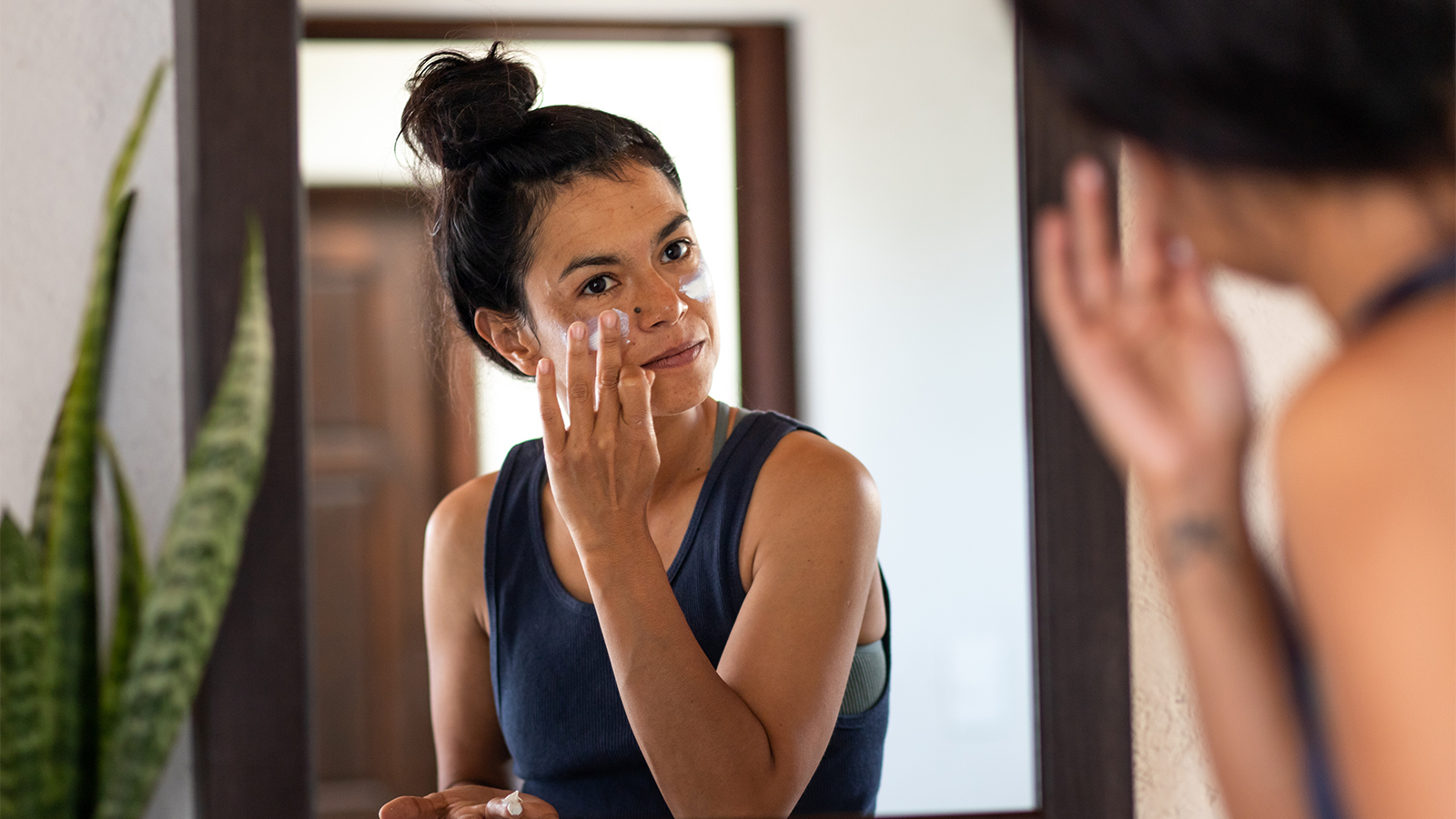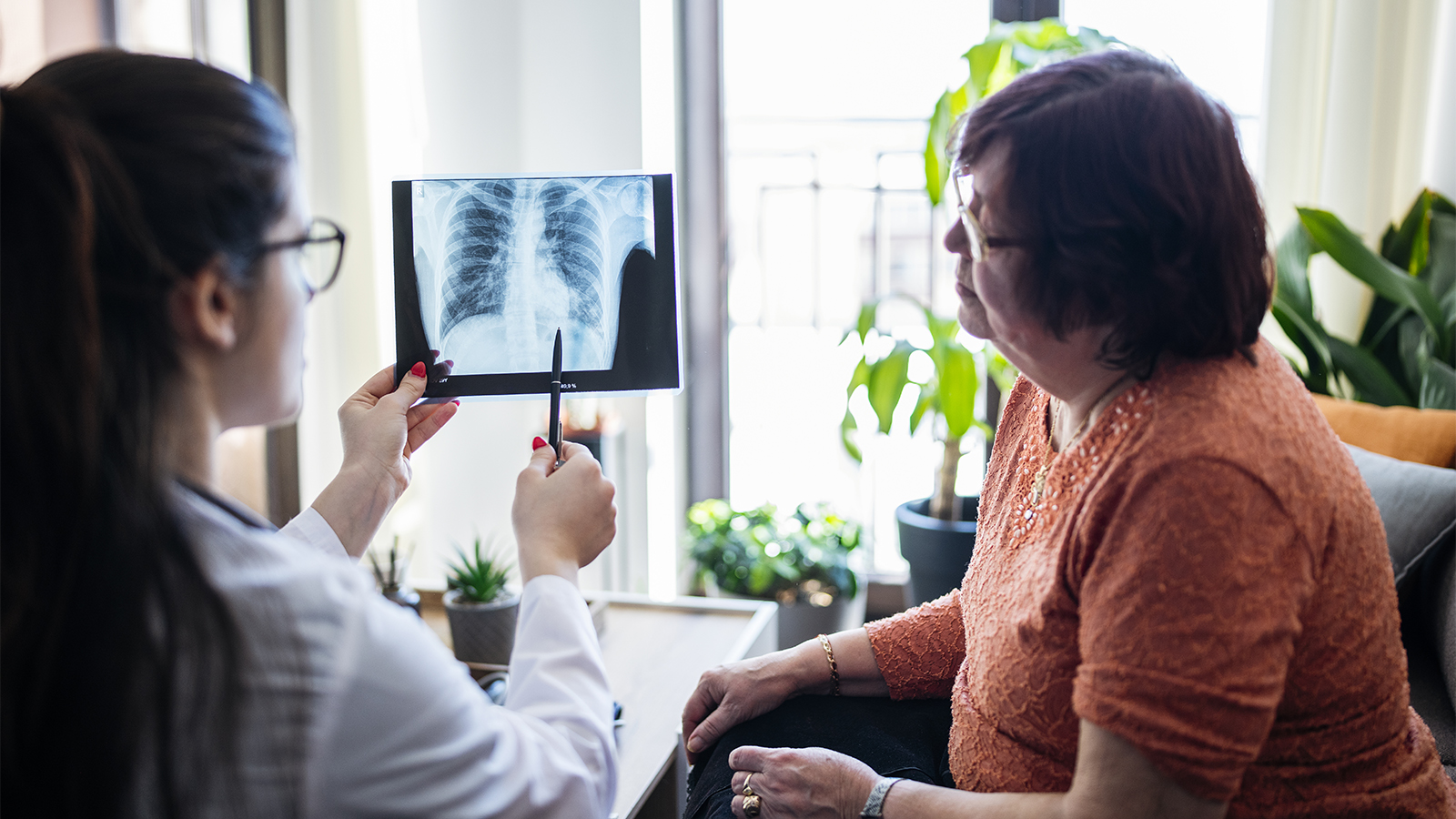Cervical Cancer Screening Guidelines: What You Need to Know
Ever wonder how often you need a Pap smear or pelvic exam? We cover the things you might need to know to prepare for your next OB/GYN visit.

By Rachel Kramer, MD, Obstetrician and Gynecologist—Virtua OB/GYN
Do I need a yearly GYN exam and Pap smear?
There’s no question—while an annual Pap smear (the test that screens for cervical cancer) may not be necessary if you have normal test results, you still need a yearly GYN and pelvic exam.
The Pap smear is only a part of the pelvic exam. During your annual GYN visit, your doctor also checks for skin cancer, uterine masses, pelvic floor issues, sexually transmitted infections, cervical polyps, breast cancer, and more.
Your annual GYN exam is also an excellent opportunity to identify and treat conditions early, and to discuss any health concerns with your doctor. For example, if you plan to get pregnant or are nearing menopause, your doctor can help you prepare and answer your questions.
Why is it important to have a Pap smear?
Pap smears detect the presence of pre-cancerous cells on the cervix so the condition can be treated before it has a chance to develop into cervical cancer.
Human papillomaviruses (HPVs) are spread by sexual contact. They are so common that nearly everyone has one type of virus. While there are more than 150 related HPVs, only 14 types cause cancer, two of which are responsible for 90 percent of cervical cancer cases.
What are the cervical cancer screening guidelines?
The United States Preventive Services Task Force (USPTF) recommends the following:
- A woman should get her first Pap smear at age 21 and continue screening every three years.
- After age 30, a woman should get a Pap smear every five years.
- Women 65 and older who’ve had three normal consecutive Pap smears never need to be tested again. Although, if they're sexually active and change partners, they may want to be tested for other types of STDs.
While these are the general guidelines, there are exceptions. If you have a history of abnormal Pap smears or have been diagnosed with a condition that weakens the immune system (like HIV), you may need to be screened more often. Also, if you're over 65 and have had high levels of cervical abnormality, you may need to continue regular screenings.
Why don’t we need yearly cervical cancer screenings?
It may seem counterintuitive to be screened less often for a condition that’s so widespread, but the current screening guidelines are based on years of scientific research.
Here’s what we know about cervical cancer screening:
- The Pap smear is more accurate than ever before.
- HPVs that cause cancer are slow growing.
- The body’s immune system can fight off HPVs.
- More frequent screening can lead to unnecessary treatments.
- HPV treatments such as cone biopsies or surgical removal can cause complications during pregnancy.
If you have questions or concerns about cervical cancer screening, make sure to get in touch with a women's health care provider.
Make your annual OB/GYN exam a priority
Whether it’s for a Pap smear or for keeping track of your overall gynecological health, your annual GYN exam is an important part of your preventive care. Find a Virtua OB/GYN near you and schedule an appointment online.
There's So Much More to Explore
Discover expert insights, inspiring stories, health tips, and more by exploring the content below!

The Weird Pregnancy Side Effects No One Tells You About

10 Reasons to Schedule Your Colonoscopy Screening Today

At-Home Colon Cancer Tests vs. Colonoscopy: Which Screening Option Is Right for You?

10 Hand Washing Tips to Keep You Healthy All Year

How Exercise Helps Fight the Winter Blues and Improve Your Mood

8 Signs It's Time to See a Gastroenterologist

How the Unique Stages of a Woman's Heart Affect Her Health

Complex Aortic Surgery Provides Lu’Shell Hope for the Future

8 Stretching and Balancing Exercises for Older Adults

Cervical Cancer Screening Guidelines: What You Need to Know

Healthy Snack Recipes for Kids: Fast, Fun, and Full of Flavor

What To Eat Before And After Your Workout

HeartTalk Magazine

How to Spot the Early Signs and Symptoms of a Stroke

Healthy Takeout Made Easy: What to Order for Better Nutrition

How Weight-Loss Surgery Can Improve Diabetes, Heart Health, and More

6 Tips for an Easier Colonoscopy Prep

How to Achieve Your Health Goals This Year

Knee Replacement Rehab: 7 Exercises to Restore Your Strength and Range of Motion

Caregiving During the Holidays: Ways to Manage Stress and Find Joy

Bioidentical Hormone Replacement Therapy Pellets: Relief for Menopause and Andropause Symptoms

Why Is Sex Painful During Pregnancy? Pelvic Congestion Syndrome Explained

COVID-19 Vaccines and Pregnancy: FAQs

COMFORTing Tips to Avoid Holiday Heartburn

How to Tell the Difference Between Cold, Flu, and COVID-19

From Exhaustion to Empowerment: Tracy's Hormone Replacement Therapy Success Story

Daily Wellness Checklist: Simple Habits for Feeling Good Inside and Out

Sexual Health FAQs: The Questions Everyone’s Too Embarrassed to Ask

3 Reasons Why Now's the Time to Find Relief From Varicose Veins

How to Get and Stay Healthy This Fall

How to Reverse Prediabetes and Prevent Type 2 Diabetes

6 Ways to Get More Out of Your Daily Walk

Young Breast-Cancer Survivor Has New Hope for Healthy Future

What To Know About Vaginal Discharge During Pregnancy

Is Cancer Hereditary? What You Need to Know About Your Genetic Risks

Tara's Story: From Debilitating Uterine Fibroid Pain to a Half-Marathon Medal

Is Your Post-Pregnancy Belly Bulge a Sign of Diastasis Recti?

Your Guide to Mammograms: When to Get Screened and What to Know

The Top 10 Foods That Boost Your Brain Health

Is It Safe to Exercise During Pregnancy?

Prevent Yard Work Injuries: Tips for Mowing, Gardening, and Raking

Healthy Weight Gain During Pregnancy: A Guide for Moms-to-Be

How to Curb Nighttime Snack Cravings

Is Your Daily Walk Making You Really Sore?

IBS and Alcohol: Can You Still Enjoy a Drink?

'Feeling Joy Again': ECT Brain Stimulation Therapy Restores Ashley's Well-Being

Not Just for Wrinkles: Botox Injections Promote Improved Bladder Control

Caring Maternity Team Transforms Harley's Pregnancy Crisis Into Lasting Memories

Robotic Hysterectomy, Trusted Care Help Bobbi Shine Again

Easy, Healthy Lunch Ideas for the Beach

How to Stay Cool and Prevent Heat Illness All Summer Long

Do Not Get Burned by These Sunscreen Myths

Beat the Bugs and Save Your Summer

How to Have a Healthy Pregnancy if You're Overweight

Why You Get Sick on Vacation (and How to Stay Healthy While Traveling)

6 Hot Tips for a Safer Summer

4 Surprising Health Truths You Should Know

5 Interesting Facts About Your Heart

Is Low Sex Drive Normal? Revealing the Complex Causes of Low Libido in Women

CABG Surgery: What Women Should Know About Heart Health and Healing

5 Feel-Good Activities to Explore Around South Jersey

Stress Incontinence vs. Urge Incontinence: What's the Difference?

3 Changes You Can Make Today to Lower Your Cancer Risk

A Lung Cancer Screening Could Save Your Life

Take Pride in our Health: Must Dos for LGBTQ+ Preventative Care

4 Foolproof Pelvic Floor Strengthening Exercises for Women

What to Expect During Perimenopause

Protect Yourself From Tick Bites and Lyme Disease

10 Quick Ways to De-Stress

4 Ways to Stay Fit and Healthy on a Budget

Do You Know the Signs and Symptoms of Uterine Fibroids?

How Are Uterine Fibroids Treated?

Can I Have Sex After a Hysterectomy?

From Restless to Restful: How Movement Improves Sleep

5 Simple Ways to Spring Clean Your Wellness Routine

What to Expect From a Robotic Hysterectomy

When You Need A Hysterectomy Know Your Options

Take Control of Incontinence, Prolapse, and Other Pelvic Floor Disorders

How Can I Prevent Bone Loss and Osteoporosis?

The Truth About Menopause, Weight Gain, and Belly Fat

Shedding Light on Lesser-Known Menopause Symptoms and Solutions

Debunking The Myths About Vaginal Dryness

Best Foods for Kidney Health

What Causes Food Addiction And What Are The Signs

5 Essential Winter Foot Care Tips When You Have Diabetes

Advanced Minimally Invasive GYN Surgery Puts You at the Center of Care

Your 10-Point Plan to Avoid Winter Weight Gain

Colitis Symptoms Under Control, Jennifer Is ‘Living My Best Life’

Surprising Symptoms May Signal Stroke In Women

8 Key Steps to Better Blood Pressure Control

5 Back Stretches for the Work-From-Home Workweek

The HPV Vaccine: A Powerful Shield Against Cervical Cancer

How Does Breast Density Affect Your Mammogram?

Menopause: New Insights Into the Power of Hormone Replacement Therapy

How to Prevent and Treat Urinary Tract Infections

One New Heart Valve Saves Two Lives in the Tritten Family

6 Numbers Key to Keeping Your Heart Healthy

4 Easy Ways to Treat and Prevent Runner's Knee

Breast Cancer Diagnosis Inspires Catherine to Help Others

Five Mindfulness Tips That Can Help Heal Your Heart
Working from Home? Take a Quick Break to Stretch Your Wrists

Love Your Heart: Essential Care Tips for Every Stage of Life

How Do I Measure My Blood Pressure at Home?

How Do I Improve My Cholesterol Levels?

3 Ways to Reduce Your Stroke Risk

Sarah Wins Back Her Health After Crohn's Disease Diagnosis

A Breast Self-Exam Saved Kristen's Life

How Sex Keeps You Healthy as You Age

Protect Your Child From HPV and Related Cancers

Why IUDs Might Be The Most Effective Birth Control

5 Things You're Too Embarrassed to Tell Your OBGYN

